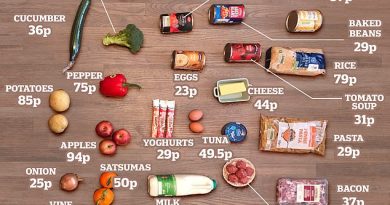What would you do to get a bigger inheritance?
[ad_1]
Danger of will disputes growing as nearly half of elderly parents plan to split their wealth unequally between children in their will
- Only 55% of parents plan to dish out inheritance equally to children
- 40% of adult children or relatives said they would take steps to boost their share
- Only around 20% of people have talked to loved ones and inheritance and death
Only 55 per cent of adults plan to split their wealth equally among their children when they die, new findings reveal.
Even though the potential for family fallouts over inheritance matters is high, many want to ensure their inheritance cash can be used to help make their children financial equals, meaning any offspring earning less will get a bigger slice of the pie on their parents’ death.
The survey from Charles Stanley suggested that nearly 40 per cent of adults actively try to boost their chances of getting a bigger inheritance by, for example, visiting an elderly relative more frequently or moving to a home closer to their parents.

Unfair? Only 55 per cent of adults plan to split their wealth equally among their children when they die, new findings claim
Around one in eight parents said they would divide their money and assets up equally for their children when they die, but take into account financial support they had already given to each of them beforehand, findings from wealth management firm Charles Stanley show.
Just shy of 40 per cent of adults admitted they would be upset if they received less inheritance money than their siblings, while a quarter went further and said it would make them feel ‘betrayed’.
According to the findings, there are demographic variations concerning how many would feel upset or betrayed by an unequal inheritance payout.
Forty-six per cent of people aged between 54 to 74 said they would be upset, while 27 per cent claimed they would feel betrayed if they received a smaller inheritance than a sibling from their parents.
Meanwhile, the corresponding figure for both among millennials was 22 per cent, according to Charles Stanley.
Thirteen per cent of people said they had tried to visit their parents or relatives more frequently in the hope of boosting their chances of getting a bigger slice of the inheritance pie, while 7 per cent had moved to a property closer to their parents in a bid to win them over.
Younger generations are more likely to take active steps to try and increase their inheritance pot, while those in older age groups are far less likely to do so, the research suggests.
As ever, one of the key problems about topics like inheritance and death in general is that people do not talk openly about them. Unsurprisingly, this can often lead to seismic and unnecessary family rifts which are difficult to repair.
Just 21 per cent of adults said their family talked openly about inheritance so that it could be planned for as a family. Worryingly, 15 per cent said their parents either do not have or did not leave a will.
Alex Price, director of financial planning at Charles Stanley said: ‘Where there’s a Will, there’s a war.
‘A lot of the issues that can arise could be diffused by simply being open about plans and talking with family members about the decision-making process.
‘It’s not always easy to start those conversations as they can seem awkward and uncomfortable, but avoiding the subject is not the answer and could come at a price.
‘Not only could families lose out financially by not planning ahead and taking advantage of legitimate inheritance tax exemptions, they could also be leaving a legacy of family conflict which could be avoided.’
Anyone who does find themselves with an inheritance from a loved one should take time to consider how best to use the money. Using it to pay off debts or ploughing it into savings or investments could be ideas to consider, but it is best to seek professional financial advice beforehand.
[ad_2]
Source link


